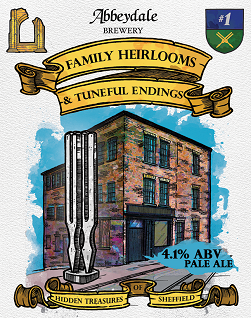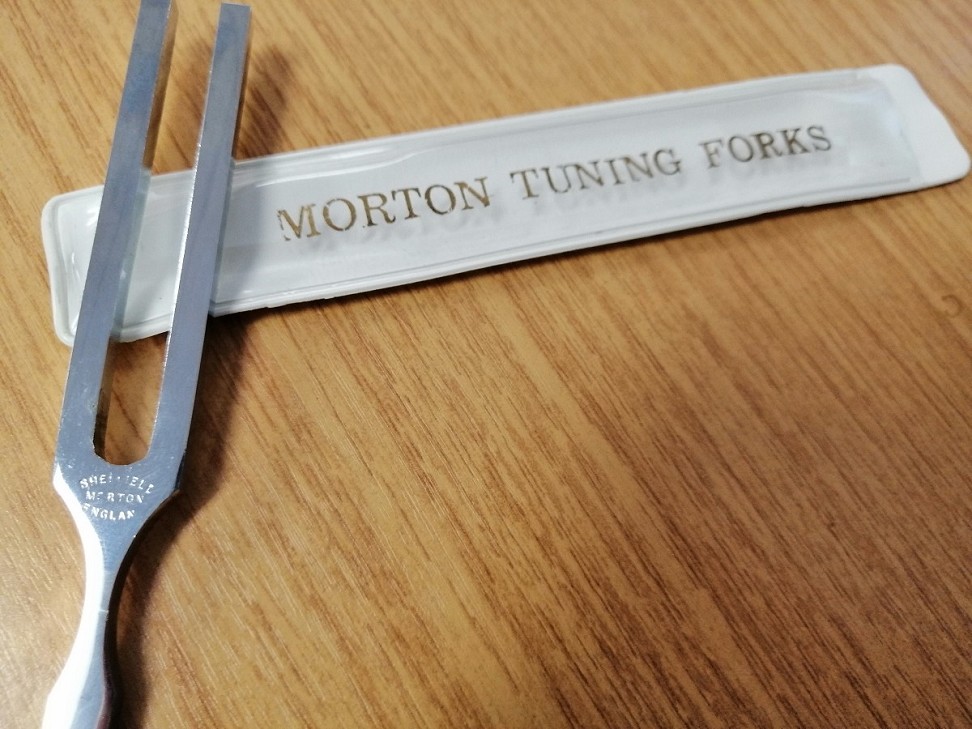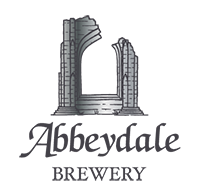Hidden Treasures of Sheffield

Our Hidden Treasures of Sheffield series launched in March last year, just two weeks before lockdown gripped the nation. With pubs now starting to re-open, and our cask production starting to increase (hooray!), we thought a great place to pick back up our weekly cask specials was by bringing back the first of this series, which didn’t get much opportunity to shine last year, but has a story to tell that’s very important to the essence of what we’re all about here at Abbeydale Brewery.
The Hidden Treasures series is inspired by our strong sense of place. Our beloved hometown has such a rich history, and so much of the everyday is overlooked in favour of more glamorous, visible landmarks. We wanted to shine a light on the bits of our city that we think are truly special, and that you might not necessarily have come across before. The beers themselves will be the classic, sessionable pale ales that we’re so well known for, but that we also don’t get too much cause to shout about every day. Here’s to the humble, the timeless, and the dependable.
For this beer, we’re taking you right back to the pre-Abbeydale Brewery days, as far as the 1950’s, to be precise. Here’s the story of Family Heirlooms and Tuneful Endings…
Before being in the brewery business, Patrick Morton, his dad Hugh and brother Chris all worked together on West Street, where they carried on the quintessentially Sheffield family tradition of being cutlers. Hugh had been there since the 1950s and was joined by his two sons a couple of decades later.
Manufacturing scissors was the primary operation, and what the Morton’s made were among Sheffield’s finest. The problem with this was that they made things that lasted forever. They were also expensive, and unable to compete with cheap imported scissors which were inexpensive enough to throw away and replace. They tried other things like hand-made Bowie and tool-steel commando knives for the American custom-knife market. Making folding knives was a step too far with the machinery, and probably know-how (and, at least in Pat’s case, patience!), they had available. In the last few years the shop did more scissors, knives, and sheep shears repairs than selling new products.
Mortons, the shop on West Street, soldiered on regardless, selling an amazing collection of bric-a-brac and cutlery, often bought by the hundred-weight at auction from Sheffield’s dying industries.
The writing was on the wall. Pat and Chris both went to Sheffield University within a year of one another in the early 1980s, and Hugh, along with Pat and Chris’s mum, Dolly, finally had the business to themselves. In the 1990s, Hugh eventually gave up with cutlery and he and Patrick set up Abbeydale Brewery in 1996 (Hugh being instrumental in this, having a lot of confidence in a business where people consumed the product and then came back for another!). Dolly was the sales force of our local little brewery in days where the big breweries dominated all beer sales.
By the 2000’s Abbeydale Brewery was well established and growing. Chris (following a stint in IT), worked alongside Patrick, and Hugh finally retired. Chris was the Rising Sun’s first landlord when Abbeydale Brewery took it over from the Sheffield University Union. However, deciding that he much preferred to drink it rather than have much to do with making beer, Chris eventually left the business and now runs his own web software business, Plan Alpha Systems. Pat was joined by his wife Sue, and the two of them continue to lead us ever-forwards to this day.
So what about those tuning forks sculptures? They appeared without fanfare when the now ‘Morton Works’ was redeveloped into flats and a bar (the name always amused Hugh, as he’d only ever leased the building!). You can find them on West Street, at the top of Bailey Lane between ‘Morton Works’ and what used to be called the Labour Exchange. No-one seems to know much about why they are there. This is where we come in to bring a lost story back to life!

Here’s the answer to the puzzle. In 1974 Chris became an apprentice tuning fork maker for Ragg Tuning Forks, then on Little London Road in Woodseats. He still got to do grinding and hitting things with hammers; so that satisfied the Sheffield ‘gene’. A couple of years later Chris, utilising Pat’s knowledge of physics and electronics, sorted out how to get an oscilloscope and a frequency generator to do the final tuning-fork tuning. Tuning fork making got underway for a while at the factory on West Street. The discovery of hundreds of part-manufactured tuning forks became a real inspiration for the builders who found them when redeveloping the building, and clearly they deemed them important enough to commemorate forever as a part of Sheffield’s industrial heritage.
Who made the tuning fork sculptures? We’d love to know…
Family Heirlooms and Tuneful Endings is a 4.1% pale ale, hopped with Eureka, Enigma and Dr Rudi hops. It’ll be available in cask only from the week commencing 3rd May.




